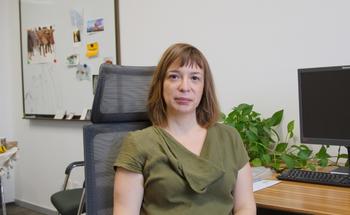Dr. Ceren Ergenç

Fellow in the project "Social Worlds: China's Cities as Spaces of Worldmaking" (May 2023)
Short Biography
Ceren Ergenç is a researcher at the East Asian Studies and Research Centre (CERAO), Autonomous University of Barcelona. She was previously an associate professor of China Studies at Xi’an Jiaotong-Liverpool University. She holds a PhD from Boston University in political science. Her research interests include public policy and urban politics with an area focus on, but not limited to, contemporary China and East Asia. Her research includes both qualitative and quantitative fieldwork methodologies. Among her publications are:
Political Efficacy Through Deliberative Participation In Urban China: A Case Study On Public Hearings, Journal of Chinese Political Science, Vol 19 Issue 2 pp 191-213 (2014)
Ergenc, C. (2022), Local variation and central-local relations in China’s pandemic management, Journal of Asian Public Policy, DOI: 10.1080/17516234.2022.2158214
Ergenc, C. and Goodman, D.S.G. (2023) (ed), The Handbook on Local Government and Politics in China, Edward Elgar Publishing
Project
Marginalization of informal labor in China’s waste governanceMunicipal Solid Waste (MSW) governance is a case in point for green growth serving financial accumulation within the global neoliberal capitalist system. China’s waste pickers, sorters and scavengers are predominantly rural-to-urban migrants. Migrants are essential to economic growth of Chinese cities, and their socioeconomic predicament is well-researched in a number of sectors such as construction, gig economies, and manufacturing. Informal MSW workers are, however, largely absent in the scholarly literature. The predicament of informal MSW workers overlaps with issues related to social inclusion of migrant workers in urban China. This research project concerns migrants in MSW governance in urban China. Unlike other sectors, they are vital to MSW governance not with their sheer numbers but lay expertise. Hence, this project aims to examine the demographics of migrants, their labor and welfare relations before and after the top-down recycling policy, and their relationship with the other actors in the MSW sector in a comparative perspective.
